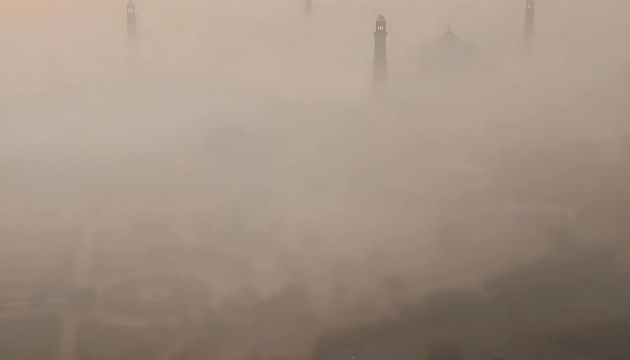ISLAMABAD: The United Arab Emirates (UAE) has offered Pakistan material and technical assistance to reduce the impact of smog in different parts of the country.
In a brief interview with private news media, UAE Ambassador to Pakistan Hamad Obaid Ibrahim Salem Al-Zaabi expressed concern over the fog situation in Pakistan, particularly in Punjab.
He recalled that the UAE administration had provided technical assistance to Pakistan to help address the haze last year, during the tenure of the caretaker government.
He added that the UAE provided special aircraft for cloud seeding, which helped create artificial rain in some areas and offered relief to the brotherly people.
Ambassador Al-Zaabi stated that smog has been discomforting and must be controlled by all possible means. He expressed satisfaction with the administration here for taking appropriate steps to address the situation.
The UAE envoy said he was in contact with the Pakistan government and was hopeful it would take further steps to alleviate the suffering caused by smog.
Read More: Jaffar express, Bolan mail services suspended for 4 days
The UAE assisted Pakistan with cloud seeding for precipitation in December last year, marking the first experiment of its kind in the South Asian country.
On December 16, 2023, planes equipped with cloud seeding technology flew over 10 areas in Lahore, a city frequently ranked among the worst globally for air pollution.
At a press conference, Punjab’s then-caretaker chief minister Mohsin Naqvi stated that artificial rain was utilized to combat hazardous smog levels in the provincial capital. CM Naqvi had mentioned that the “gift” was provided by the UAE.
He told the media, “Teams from the UAE, along with two planes, arrived here about 10 to 12 days ago. They used 48 flares to induce the rain.” The UAE has increasingly employed cloud seeding, also known as artificial rain or blueskying, to generate rainfall in the country’s arid regions.
The weather modification process involves releasing common salt, or a mixture of different salts, into clouds. The crystals help promote condensation, leading to rainfall. It has been deployed in dozens of countries, including the United States, China and India.
Even very modest rain is effective in bringing down pollution, experts say. Air pollution has worsened in Pakistan in recent years, as a mixture of low-grade diesel fumes, smoke from seasonal crop burn off and colder winter temperatures coalesce into stagnant clouds of smog.
Lahore suffers the most from toxic smog, choking the lungs of over 11 million residents in the metropolis during the winter season.











